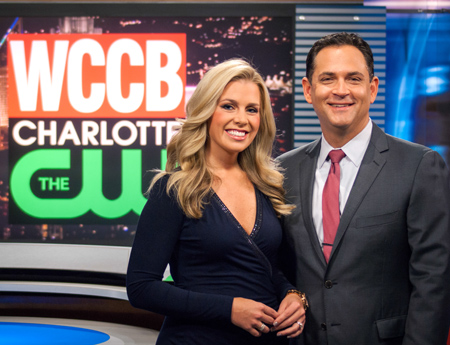The Loneliest Stations in the Nation

The smarter way to stay on top of broadcasting and cable industry. Sign up below
You are now subscribed
Your newsletter sign-up was successful
There may be no lonelier faction in local TV these days than standalone CW affiliates. The industry’s rampant consolidation has made these stations easy targets, while the popularity of the duopoly model has seen many of these longtime lone wolves paired with a Big Four station in the market.
Yet a handful of independently operated CW stations persists. “It’s definitely more challenging,” says Jim Babb, executive VP and chief operating officer of Bahakel Communications, parent of WCCB Charlotte. “Having a traditional network [affiliate] in the market helps.”
WCCB was left scrambling when Fox seized the Fox affiliation in 2013, but Babb says the transition to CW has gone “extremely well.”
“They know we’re kind of the new kid on the block,” he says. “They try awful hard to help.”
While a CW affiliation won’t bring the revenue riches of a Big Four, stations will likely find a more sympathetic partner. “Given that we’re The CW, we work harder than anybody else out there to grow the network with our affiliates,” says Chris Brooks, senior VP of network distribution.
CW affiliates without a station partner in their market include WBNX Cleveland, WUPA Atlanta, WPIX New York and WBXX Knoxville. Affiliates have long pushed the network to broaden beyond its young female core, and strong rookie showings from Jane the Virgin and The Flash have helped. An older, more male viewership serves as a stronger lead-in to late news. But the costs of producing news can be prohibitive for a stand-alone, often prompting one to outsource production to a competitor.
Key to them surviving these days may be the backing of a major parent group. Tribune, for one, owns CW stations in the major markets, and thus can work out favorable deals for its smaller stations with syndicators and vendors. “Those backed by strong operators can make it on their own,” says Bill Hague, senior VP at Frank N. Magid Associates.
The smarter way to stay on top of broadcasting and cable industry. Sign up below
Several stand-alones rely on digi-nets to expand their reach and offer viewers, and advertisers, greater programming diversity. WCCB has Me-TV. KIAH Houston’s Antenna TV is Nielsen rated; Roger Baird, VP and general manager, says it is “impactful” in terms of overall revenue. WKTC Columbia (S.C.) is a multicast monster, featuring The CW, MyNetworkTV, Telemundo, Antenna TV and Retro TV.
The contraction trend will only shrink the number of independent CWs; the ranks lost another member when Gray Television grabbed WQCW Charleston-Huntington earlier this year from Lockwood Broadcasting for $5.5 million. Back when Fox announced it was stripping WCCB, Babb says he was “the most popular guy at NAB,” with suitors lining up to gauge his interest in selling. Enjoying life in the land of top models and sexy vampires, the station is not on the market, says Babb. “We have no intent to sell,” he adds. “We’re thrilled to be associated with The CW.”
TRIBUNE: FALL SEASON STARTS WITH A ‘FLASH’
Late news is up, says Wert, thanks to The CW’s primetime strength
Tribune Broadcasting is the most significant holder of The CW affiliate stations. Group president Larry Wert gives his thoughts, via email, on Trib’s relationship with the network, and The CW’s fall thus far.
How is the fall season going? Are you happy with The CW shows?
We’re encouraged by the ratings performances for Flash and Jane the Virgin. Both programs have grown the time periods week-to-week and year-to-year across key demos, ranking No. 1 in the time period in several of our markets, including New York and Los Angeles. CW prime is an important lead-in for our late-night news. The programs that have launched successfully this fall have us very encouraged. We have already seen increases in our late news shows.
Do you have much input with the network?
We have a very good relationship with The CW. Mark [Pedowitz, CW president] is very engaged, objective and strategic.
Your major-market CWs, such as WPIX and KTLA, don’t feature much CW branding. Why?
All of our CW stations are supportive of the network and its programming through news and promotional initiatives. [Primetime] has done well in markets such as New York and Los Angeles, where the stations have a strong local brand identity.
Michael Malone is content director at B+C and Multichannel News. He joined B+C in 2005 and has covered network programming, including entertainment, news and sports on broadcast, cable and streaming; and local broadcast television, including writing the "Local News Close-Up" market profiles. He also hosted the podcasts "Busted Pilot" and "Series Business." His journalism has also appeared in The New York Times, The L.A. Times, The Boston Globe and New York magazine.

